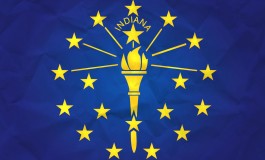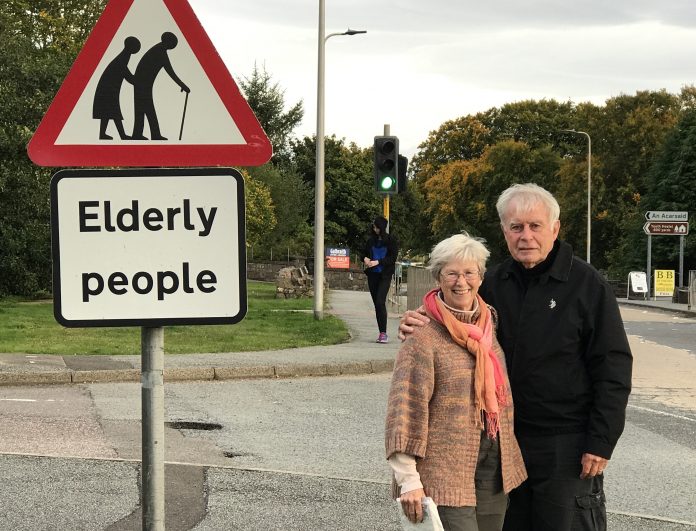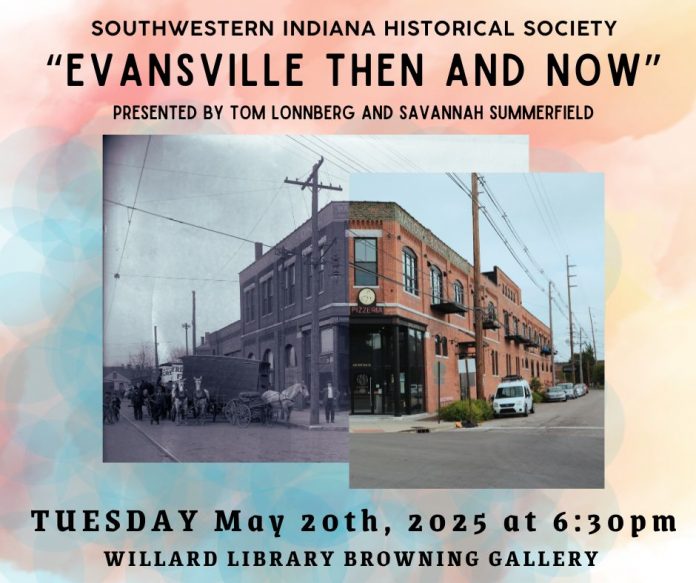Vanderburgh County lawmakers: Legislative session ends with passage of balanced state budget, tax relief and other key priorities for Hoosiers
STATEHOUSE – The 2025 legislative session ended with passage of the state’s next two-year budget as well as tax relief and other key priorities for Hoosiers, according to Vanderburgh County lawmakers.
“This session showed how Indiana can stay fiscally responsible while meeting the needs of Hoosier families,” said State Rep. Tim O’Brien (R-Evansville), who is a member of the House Ways and Means Committee and chair of the K-12 Subcommittee. “We cut taxes, crafted a balanced budget, invested in education and improved transparency around health care costs.”
The budget accounts for lowering Indiana’s state income tax each of the next two years, which will save taxpayers over $200 million per year. The legislature also advanced major property tax relief and reform legislation this session. Together, these two tax cuts will save Hoosiers $1.3 billion in taxes over the next two years. Key investments were also made in K-12 education and public safety, including expanding Indiana’s school choice scholarship program to all Hoosier families beginning next year.
“This legislative session tackled a lot of different issues, including several important fiscal matters,” said State Rep. Wendy McNamara (R-Evansville). “By passing a balanced, responsible budget, our state government will work more efficiently while still cutting taxes for Hoosiers. We also made important progress to continue improving our criminal justice system and supporting our youth.”
All eight of the House Republican priority items advanced to the Governor’s desk by the adjournment of session, including:
- House Enrolled Act 1001: Enacting an honestly balanced, two-year state budget that makes government more efficient, strengthens our commitment to education and public safety, and protects taxpayers.
- House Enrolled Act 1002: Reducing regulations on K-12 schools to increase flexibility and give local communities more control over education decisions.
- House Enrolled Act 1003: Lowering health care costs for Hoosiers by improving transparency and predictability in pricing and billing and giving patients more control over their treatment options.
- House Enrolled Act 1004: Ensuring nonprofit hospitals act as nonprofit entities focused on delivering health care.
- House Enrolled Act 1005: Improving access to housing by expanding the Residential Housing Infrastructure Assistance Program (RIF) and streamlining the regulatory process for housing development.
- House Enrolled Act 1006: Strengthening public safety by creating a review board to investigate prosecutors who refuse to enforce our laws.
- House Enrolled Act 1007: Meeting the needs of today’s energy economy while reducing costs for Hoosiers.
- House Enrolled Act 1008: Welcoming Illinois counties that have voted to secede from their state to join us in Indiana.
“Our approach every session is to listen to the concerns of Hoosiers and respond with thoughtful, effective legislation,” said State Rep. Matt Hostettler (R-Patoka). “We advanced new ideas that reduce burdens on families, support local control and respect the taxpayer. I look forward to continuing to hear from members of our community on how we can make further progress for our region.”
Applications now open for CenterPoint Energy’s Community Safety Grants
CenterPoint has awarded more than $3.25 million to support over 1,600 safety projects since launching this grant program
Grants available to support local governmental agencies
EVANSVILLE, Ind. – –CenterPoint Energy is currently accepting applications for this year’s Community Safety Grant Program through May 31, 2025. The company will award grants of up to $2,500 for local governmental agencies to fund community safety equipment and safety-related projects within CenterPoint’s electric and natural gas service areas in Indiana, Minnesota, Ohio and Texas.
Since launching the program in 2003, CenterPoint has awarded more than $3.25 million in grants for over 1,600 safety-related projects in communities throughout the company’s footprint.
“At CenterPoint, safety is our top core value, and this drives every effort we take as a company for the customers and communities we are privileged to serve,” said June Deadrick, CenterPoint’s Vice President, Community Relations. “Through our Community Safety Grant Program, we are thrilled to recognize the work our emergency responders, local officials and many others do to help support the health and safety of our customers across the communities we, too, call home.”
Through this program, the grants have enabled communities to install public AEDs (automated external defibrillators), update emergency communication equipment, purchase personal protective equipment for first responders, install traffic control signs, buy gas monitoring devices and complete many other types of safety projects.
Each community CenterPoint serves can submit one grant application with information on a safety-related problem, issue or need in the community and how a Community Safety Grant would help address those needs.
Registration open for Summer 2025 USI healthcare conferences and workshops
During the third quarter of 2025, USI’s Center for Health Professions Lifelong Learning will offer the following conferences and workshops designed to provide essential continuing education and professional development opportunities for health professionals across disciplines.
Respiratory Excellence: A Conference for the Whole Team – June 26
This conference will equip respiratory therapists, nurses and other healthcare professionals with the latest knowledge and skills to navigate the evolving respiratory care landscape and enhance interdisciplinary collaboration.
Presenters are:
- Chandler Jones, Pulmonary Disease Navigator at Novant Health, specializing in the management and education of patients with chronic pulmonary conditions while facilitating interdisciplinary care and discharge planning
- Dr. Raghav Gupta, Pulmonologist at Deaconess Health System and Adjunct Clinical Assistant Professor of Medicine at Indiana University School of Medicine-Evansville.
- Erin Parchman, USI Assistant Professor of Respiratory Therapy with extensive experience in ICU and trauma care, whole body health and sleep medicine
- Mary Phillips, USI Assistant Professor and Chair of Respiratory Therapy.
- Dr. Bailey Rankin, Assistant Professor and Chair of USI Graduate Nursing and Acute Care Nurse Practitioner in Pulmonary and Critical Care at Deaconess Health
- Steve Greubel, Clinical Coordinator of Respiratory Therapy in the St. Vincent NICU and member of the Neonatal Transport Team
The deadline for reduced registration is June 12. For more information, visit USI.edu/rt/conference.
Mid-America Institute on Aging and Wellness (MAIA) – August 7-8
This annual conference provides practical tools and ground-breaking information to enable attendees to incorporate current guidelines and best practices in successful aging and wellness through interprofessional collaborative practice. Topics will include inspirational keynotes as well as multiple sessions ranging from healthy aging to coping with illness.
Each year, USI’s Bronstein Center for Healthy Aging and Wellness is proud to sponsor the Bronstein Keynote Speaker at the MAIA conference. To advance the educational mission of the Bronstein Center, the Bronstein Keynote must be a content expert in the area of dementia or advance care planning (ACP).
This year’s Bronstein Keynote is Dr. Aaron Blair, a graduate of Indiana University School of Medicine and Franciscan Family Medicine Residency, where he focused on geriatric medicine. His current practice is outpatient family medicine with nursing home care in Dale, Indiana. In his presentation, he will go through the diagnosis of dementia along with current treatments used to help patients with dementia and delirium.
The 2025 MAIA keynote lineup also includes the following:
- Faith Bresnan Roberts, an international speaker on topics close to everyone’s heart. As a nurse, she has practiced in varied settings, served as faculty, published, and spoken at state, regional, national and international conferences. The title of her presentation is From Wedding Rings to Nose Rings … Generational Differences.
- Dr. Jeremy Holloway, Health Equity Professor at New Mexico Highlands University. The focus of his research is concentrated on the social determinants of health, specifically self-efficacy, connectedness and resiliency of older adults. The title of his presentation is Solutions to Isolation and Loneliness for Caregivers & Older Adults.
- A screening of the Netflix documentary, Join or Die, followed by a discussion with the film’s director. This film recently received two nominations (for outstanding writing and graphic design) for the upcoming Documentary Emmy® Awards, to be held June 26. Join or Die focuses on the decline of community connections in America and its impact on social isolation.
“The Join or Die documentary emphasizes how community involvement can help reduce social isolation for older adults in southern Indiana and students at USI,” says Dr. Kevin Valadares, USI Professor and Chair of Graduate Health Administration. “Screening this documentary, along with Jeremy Holloway’s keynote presentation, underscores the significance of these efforts in enhancing overall well-being. Plus, this year’s pre-conference is also connected to the theme of reducing loneliness.”
The MAIA pre-conference on August 6 is a Circle of Friends® Facilitator Training. Attendees will learn how to implement an evidence-based group intervention for older adults experiencing loneliness. Nursing home staff, community members and older adults interested in implementing a Circle of Friends® program are invited to register at USI.edu/maia/pre-con. This training is free for participants with support from the USI Bronstein Center for Healthy Aging and Wellness and the Geriatrics Workforce Enhancement Program (GWEP).
The deadline for reduced registration for the two-day conference is July 23. For more information, visit USI.edu/maia.
Strengthening the Healthcare Team – September 12
Join us for an energizing and inspiring conference designed for every member of the healthcare team. Strengthening the Health Care Team explores the behaviors that drive high-performing teams, through fresh perspectives from beyond the healthcare world. Learn actionable strategies from a nationally respected coach, a global brand strategist and other dynamic voices who know what it takes to build trust, foster collaboration and lead with impact. Don’t miss this unique opportunity to recharge, connect and grow together.
The deadline for reduced registration is August 28. For more information, visit USI.edu/conferences/strengthening.
Certificate Program: Expanded Functions in Dental Care – Begins Online September 8
Expanded Functions in Dental Care allows dental professionals to place, finish and polish various restorative materials. Restoration placement is not regulated by the Indiana Board of Dentistry. This program provides didactic (online) and laboratory instruction to acquire competency of these skills.
This activity is offered once a year. Online instruction (access for six weeks) must be completed prior to the scheduled laboratory date (October 18). The laboratory session will include nine hours of practice on a mannequin. Completion of three additional live patient experiences in a dental office is required before certification is complete.
The deadline to register is September 3. For more information, visit USI.edu/expanded-functions.
Dental Trends – September 5 and 6
Join us for a two-hour cutting-edge program, “Prophy Princess to Profitable Healthcare Hygienist: Growth and Success Through Lifelong Learning,” that delves into the evolving science of biofilm and the oral microbiome and their powerful connections to both oral and systemic health. To accommodate busy work schedules, the same program will be offered on both Friday and Saturday—attend on the day that works best for you.
When the balance of the oral microbiome is disrupted, it can lead to dental diseases like caries, gingivitis, and periodontitis, and even contribute to systemic conditions such as cardiovascular disease, diabetes and respiratory infections.
Discover how current trends are reshaping periodontal care as we compare traditional hygiene methods with the Guided Biofilm Therapy (GBT) protocol in preventive and non-surgical periodontal treatment. Additionally, learn how incorporating innovative adjunctive therapies can enhance patient outcomes and elevate your practice. Don’t miss this opportunity to advance your clinical approach with evidence-based strategies that meet the demands of patient care.
The deadline for registration is August 31. For more information, visit USI.edu/dental-trends.
For information, call toll-free 1-877-USI-HLTH (874-4584) or 812-461-5217 or email usi1nhpcert@usi.edu. The entire list of 2025 conferences and workshops is on the Center’s website.
About the USI Center for Health Professions Lifelong Learning
The USI Center for Health Professions Lifelong Learning is committed to providing quality and excellence in interprofessional continuing education. In addition to in-person events, the USI Center for Health Professions Lifelong Learning also offers a variety of online programs for those looking to expand their knowledge in a specific disease state or care niche.
Continuing Education Continuing Education (CE) hours are available for nurses, physicians, pharmacists, social workers and health facility administrators. CE hours will also be available for Indiana licensed marriage and family therapists, occupational therapists, occupational therapy assistants, mental health counselors and dental professionals.
Accreditation Statement
In support of improving patient care, the University of Southern Indiana Center for Health Professions Lifelong Learning is jointly accredited by the Accreditation Council for Continuing Medical Education (ACCME), the Accreditation Council for Pharmacy Education (ACPE), the American Nurses Credentialing Center (ANCC), and the Association of Social Work Boards (ASWB) Approved Continuing Education (ACE) program to provide continuing education for the healthcare team.
State of Indiana
The University of Southern Indiana has been approved by the Indiana State Board of Health Facility Administrators as a sponsor of continuing education programs for health facility administrators. License number: 98000033A
The University of Southern Indiana is an approved provider of continuing education for several professionals licensed in the state of Indiana, including social workers, marriage and family therapists, psychologists, occupational therapists, occupational therapy assistants, mental health counselors and dental professionals.
SLÁINTE
SLÁINTE
GAVEL GAMUT
By Jim Redwine
www.jamesmredwine.com (Week of 19 May 2025)
Not long ago Peg and I visited the Isle of Skye in Scotland. We took a bus ride to the small town of Portree and chuckled when we were let off near an intersection with a sign that said, “Caution, Elderly People Crossing”. The sign had a drawing of a bent at the waist old woman holding onto an even more acutely bent old man leaning on a cane. It looked strangely familiar.
Portree is the capital of the Isle of Skye. It has a little more than 2,000 residents, most of whom pretend to speak English, but who really communicate among themselves in Scottish Gaelic. Alcohol is available as long as you do not order “Scotch”. The Scotch drink is “whiskey”. The locals are reservedly polite but do not hide their bemusement at American tourists, especially if the tourists resemble the Elderly Crossing signs.
Just as many other societies, the Scotch have an arcane yang and yin approach to regulating the use and abuse of alcohol. At our hotel the tiny bar was intimate and comforting. Dark walls and heavy wooden furniture were accented by the lone barkeep who was obviously accustomed to explaining the local customs to hapless American tourists. He was of ruddy, bewhiskered visage and a roguishly engaging attitude. He was reminiscent of the 19th century immigrants who brought their Viking-like culture with them to America. Peg and I were his only customers that bleary afternoon after our bus trip. He put on his best Scottish brogue to disguise the true meaning of his responses to my haltingly timid order for a double shot of Bailey’s as though I were addressing Cerberus guarding the Bar. He scoffed, rolled his eyes and his tongue then condescendingly informed me it was illegal to buy a double for one person. Then, with a twinkle he said, “Now, should you wish to buy a single for your wife and a separate single for yourself, that will work”. So, even though I had already ordered a “Scotch” for myself and received a primer on it being properly called a “whiskey”, I ordered as instructed.
This experience reminded me of my days as an underage American trying to procure 3.2% beer from a drive-through beer joint. It always seemed to me that the only thing the Volstead Act accomplished was to sharpen the imaginations of thirsty Americans and, according to my family’s lore, to keep my Uncle Henry’s moonshine still in business. It looked to me like Scotland had approached alcohol prohibition and regulation in a similar fashion.
Regardless, Peg did get to drown her ennui about “Elderly People”; the two Baileys did the trick. However, we both have remained acutely aware of how our strides might appear; we strive to walk straighter and more briskly, and, of course, without a cane.
For more Gavel Gamut articles go to www.jamesmredwine.com
Evansville Then and Now” — A Look at the City Through Time | May 20
Event Details:
Date: Tuesday, May 20, 2025
Time: 6:30 PM
Location: Browning Gallery (lower level)
Join the Southwestern Indiana Historical Society for a special evening as Tom Lonnberg and Savannah Summerfield present Evansville Then and Now on Tuesday, May 20 at 6:30 PM in the Browning Gallery at Willard Library.
This engaging program takes a closer look at the evolution of our city—how it’s changed, what’s endured, and what stories the past still tells.
No RSVP required—just bring your curiosity!
For more info, contact SWIHS at swihs1920@gmail.com
EPD DAILY ACTIVITY REPORT
FOOTNOTE: EPD DAILY ACTIVITY REPORT information was provided by the EPD and posted by the City-County-County Observer without opinion, bias, or editing.
CenterPoint Energy is monitoring forecasted severe weather and preparing for potential system impacts in southwestern Indiana
EVANSVILLE, Ind. – May 16, 2025 – CenterPoint Energy is actively monitoring severe weather forecasts and preparing for any potential impacts of strong storms expected to move through southwestern Indiana today. The company is coordinating with emergency and agency partners and mobilizing resources across its service area to be prepared to respond to impacts and outages.
“We are closely monitoring the forecast and have taken steps to position crews, equipment and support teams across our service territory. We have a plan and we are executing our plan,” said Shane Bradford, CenterPoint’s Vice President, Indiana Electric. “Our teams are prepared to respond, if needed, and will work safely and efficiently to restore service once conditions allow.”
Actions CenterPoint is Taking to Prepare
The actions CenterPoint is taking to prepare and respond include:
· Pre-staging crews and equipment: CenterPoint crews and equipment are positioned across our service area to quickly respond to potential storm impacts once conditions have cleared.
· Coordinating with government officials: Providing regular updates to state, county and city officials about our pre-storm activities and readiness posture.
· Sharing information and updates: Providing safety and preparedness information directly with customers via email, phone or text, across social media platforms and other channels to keep customers informed and prepared.
· Organizing additional call center staffing: Securing additional call center staff to handle a higher volume of calls during the storm and limit wait times.
Responding to Potential Impacts Across Service Territory
Across its Indiana Electric service area, CenterPoint is carefully monitoring severe weather and preparing to deploy frontline crews to efficiently clear storm debris, repair the grid and restore service to impacted customers as quickly and safely as possible.
Important Information for Electric Customers
CenterPoint electric customers are encouraged to enroll in the company’s Power Alert Service® to receive outage details, estimated restoration times and customer-specific restoration updates via phone call, text or email. Customers can also stay up-to-date on outages with CenterPoint’s new and improved, cloud-based Outage Tracker, now available in English and Spanish, which allows customers to see outages by county and zip code. The new tracker is capable of handling increased traffic during storms and is ADA- and mobile-friendly.
CenterPoint Encourages All Customers to Have a Plan to Stay Safe
Following infant’s tragic death, Attorney General Todd Rokita and team make sure woman’s conviction stands
Defendant with history of drug abuse violated court order barring her from being alone with newborn
A 29-year-old Evansville woman with a drug-abuse history who rolled over in bed atop her infant son, asphyxiating him to death, will remain behind bars following successful arguments by Attorney General Todd Rokita’s appeals team to uphold her conviction on neglect charges.
At the time of the tragic incident on June 8, 2022, Taylor Smith was in violation of a court order forbidding her to be alone with the 12-day-old child. She also rejected the advice of child welfare officials that she refrain from co-sleeping with the child, especially when under the influence of drugs or alcohol.
Smith is serving a 30-year prison sentence on the neglect and drugs charges.
“Because of this woman’s fateful decisions, a precious newborn child lost his life,” Attorney General Rokita said. “I’m proud of our team for ensuring she is held to account for her actions, and we can only hope that stories like this one will deter other parents and would-be parents from similar missteps.”
The child’s father also pleaded guilty to neglect charges.
Attorney General Rokita thanked Deputy Attorney General Tyler Banks for his work on this case. He also thanked Appeals Division Chief Counsel Angela Sanchez and Criminal Appeals Section Chief Andrew Kobe.











